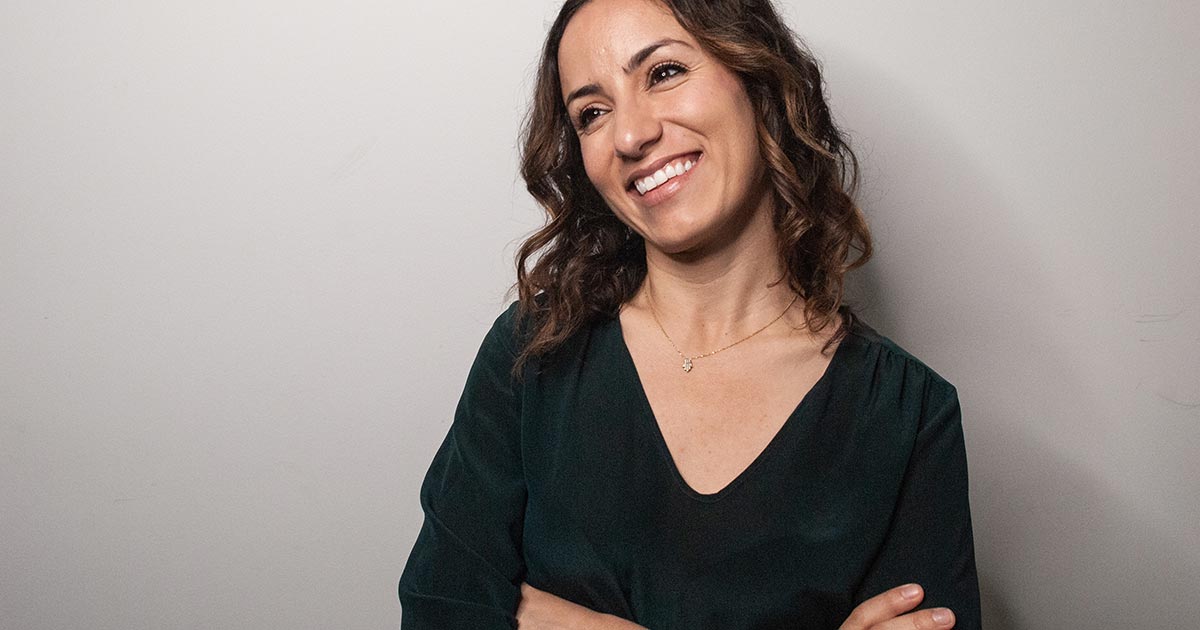
Camellia Mortezazedah: A Wealth of Public Health Knowledge
After a few months of working with Camellia as a contractor, Civilian knew we needed her as a permanent part of our team. Our own Art Ebuen interviewed Camellia to hear more about her extensive public health experience. After learning more about her background, it’s no wonder she’s already making a strong positive impact on our work across the board.
What percentage of people you meet are unable to pronounce your last name?
I’d say 70 percent, but 30 percent try, which I appreciate because they want to know. I think it’s good for America (laughs) for people to know how to pronounce my last name.
Are you from San Diego?
No, I was born in Houston and grew up in Las Cruces, New Mexico, a small town close to the border town of El Paso. I spent most of my life until college in Scottsdale, Arizona before it was fancy, and then I went to undergrad at UW-Madison. I got my master’s in public health from Yale and when I graduated I moved to New York City. I say I’m from Arizona because I have family there but if you’re asking more about where I’m from from, I’m Persian. My mom is Mexican and German and my dad is Persian. I speak Farsi, regularly eat Persian food, have dual citizenship and still have a lot of family in Iran.
With your professional background, what opportunities do you see for Civilian?
I think Civilian can really be a leader in using communication strategies to inspire change and influence the most pressing issues we grapple with as a society. My examples would be: substance use issues and how people feel about that; inequality, homelessness—issues that not only San Diego is struggling with but also across the country. If we can make a little bit of change, that means a lot and we’re slowly seeing a shift. So, if communications can be used to further this impact that to me is truly purpose-driven work. The impact is way more widespread and hence more effective than me sitting one-on-one and saying, “let me talk to you about these things.”
What past projects are you most proud of to date?
I spearheaded work for the largest public hospital system in the country, located in New York City. The system included 11 hospitals and 12 FQHCs (Federally Qualified Health Centers) and they had never really had a comprehensive health equity strategy. I developed the first, three-year plan to enhance equitable care across the system. It took a lot of work with lots of stakeholders and healthcare professionals who were not entirely engaged initially. That plan was the foundation for a lot of really positive changes in the system over the following years.
The other project was serving as the Executive Director of an initiative called Take Care New York, which involved developing a strategic agenda across 10 very different areas of the NYC Department of Health including: healthy outdoor air, substance use, healthy eating, and access to preventive care. It was looking at a lot of different topics and data and to then putting them into one, integrated framework so the average person could understand what it all means.
What advice would you give someone just starting their career?
Get experience in different initiatives. Really understanding who it is that is going to be impacted by what you’re doing is very important. Put yourself in that position, whether it’s the priority audience or the affected population. It’s about empathy. Get deep into what’s been going on, not just the present state, but the history, and your ideal future.
Have you embraced anything San Diegan you thought you would never do?
Yeah, taking my baby to a bar (laughs). I take my baby to breweries and bars all the time. I never knew I would do that. That, to me, is a quintessential San Diego thing. There are a plethora of locales for people to take children and drink. Which is counter-intuitive in a lot of ways but there’s plenty of places that make it kid-friendly.
How do you feel about being part of Civilian?
I really like the energy. What I’ve found really nice is I’ve met people here who really truly care about the issues they work on and want to do right. And it’s very efficient compared to nonprofit work where you get used to doing everything yourself. It’s nice to have more resources and brain power. The diversity of perspectives and the teams with different expertise challenge each other and add to the discussion which creates amazing results. It’s very collaborative, not a stay-in-your-lane situation, which is nice.